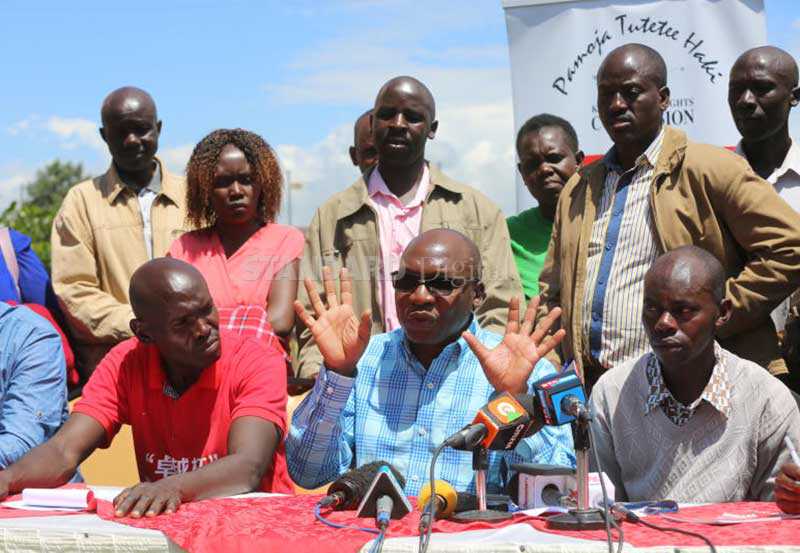×
The Standard e-Paper
Home To Bold Columnists

Victims of the Solai dam tragedy have protested, and claimed that Government is not transparent in its disbursement of compensation funds.
The victims said it was unfair to force them to leave Solai Secondary School, where they had been camping after the May 9 tragedy that left 47 people dead and 500 families displaced.